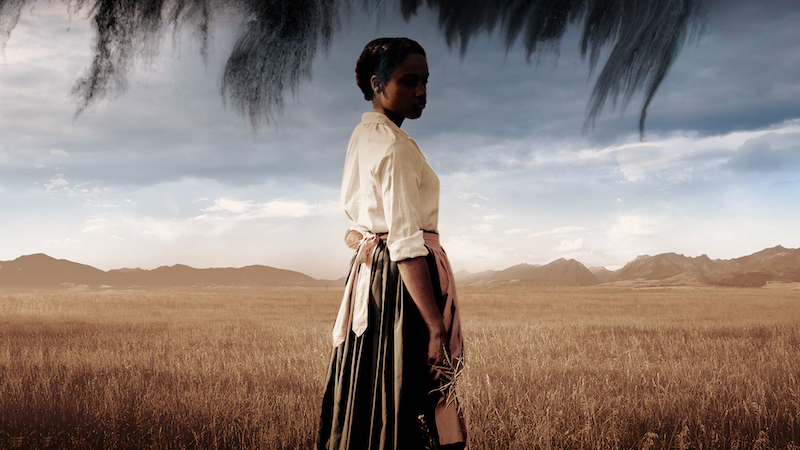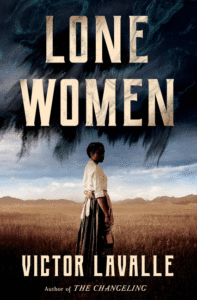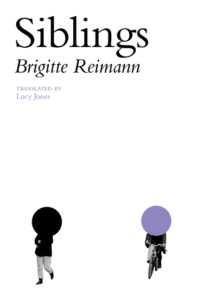
Our quintet of quality review this week includes Kristen Roupenian on Kelly Link’s White Cat, Black Dog, Mark Dery on Jeff Sharlet’s The Undertow, Chanelle Benz on Victor LaValle’s Lone Women, Joanna Biggs on Brigitte Reimann’s Siblings, and Leah Greenblatt on Jess Row’s The New Earth.
“Kelly Link is a writer whose work is easy to revere and difficult to explain … Through it all, the essential qualities of her work have remained unchanged. To those familiar with her writing, ‘Linkian’ is as distinct an adjective as ‘Lynchian,’ signifying a stylistic blend of ingenuousness and sophistication, bright flashes of humor alongside dark currents of unease, and a deep engagement with genre tropes that comes off as both sincere and subversive … Although her new collection is the first of Link’s books to present itself as a collection of fairy tales, she has always drawn from the language, symbolism, and rhythm of the genre … To say that the stories in White Cat, Black Dog are influenced by fairy tales isn’t to say very much; they’re influenced by a vast pool of intertextual allusion that includes superhero movies and Icelandic legends, academic discourse, and the work of Shirley Jackson, Lucy Clifford, and William Shakespeare … The question of where a story should begin and end is one that recurs throughout White Cat, Black Dog, and is part of what gives the stories a melancholy air of flux and fragility … The trapdoor opens; we plunge and tumble. What kind of story is this? Somehow, we were misled. Our attention was elsewhere. This is not the ending we expected.”
–Kristen Roupenian on Kelly Link’s White Cat, Black Dog (The New Yorker)
“Empty and aching, like the narrator of Paul Simon’s America, Sharlet drives cross-country, from a Sacramento rally for the insurrectionist martyr Ashli Babbitt to his home in Vermont, searching for the answer to Trump’s American carnage but equally for indelible images, pungent phrases—the stuff of myth—that will give shape to his own grief as well as ‘the grief that is in us all now,’ a heartsickness born of ‘the passing of certain possibilities—democratic, ecological— . . . which we still speak of in the present tense, as if they’re not already gone’ … In Trump’s America, narratology times demonology equals eschatology, the violent rapture of the civil war so many of them are eagerly prepping for … Sharlet tells Straight’s story and others like it, tells them with a poet’s gift for synesthesia (‘her voice was like old silver’), a wit so understated it’s barely there (‘Pastor Rich . . . attended to the soul, such as it may be, of Justin Bieber’), a hangman’s knack for giving his subjects just enough rope. Harrowing, heartbreaking, scary, but also bleakly funny in a theater-of-the-absurd way, The Undertow is a Wisconsin Death Trip for the Trumpocene, a graveside elegy on the edge of the burn pit that used to be—if only aspirationally—a democracy.”
–Mark Dery on Jeff Sharlet’s The Undertow: Scenes from a Slow Civil War (4Columns)

“Victor LaValle’s enthralling fifth novel, Lone Women, opens like a true western, with a scene of dark, bloody upheaval and a hint of vengeance. But nothing in this genre-melding book is as it seems … LaValle is deeply interested in inheritance, what is passed down through generations, particularly between mother and child, who are as tethered to each other as Adelaide is to the trunk key she wears around her neck. That bond is a source of constriction but also comfort, a constant, familiar presence whether the parent has been a “good” mother or not. The orphaned characters in the book, Adelaide included, are at a loss to proceed without the beacon of the mother. They grapple with how they should live, how to make connections with others when their mothers’ narrow cosmologies are no longer available … LaValle’s Lone Women deftly weaves history, horror, suspense and the perspectives of those rarely recorded in the West. It opens with a quote from Toni Morrison’s Song of Solomon: ‘Wanna fly, you got to give up the [expletive] that weighs you down.’ There’s a muscular poetics in the line: the ‘wanna’ and the ‘weigh,’ the ‘got’ and the ‘give,’ and the profane punctuation. The language is in service to the notion that surrender is freedom. Letting go of the past, of shame, allows one to become someone new. It’s an apt invocation in a novel centered on marginalized women in the American West who are finding ways to do more than just survive.”
–Chanelle Benz on Victor LaValle’s Lone Women (The New York Times Book Review)

“In a disarmingly direct style, alive with dialogue and detail, Reimann connects the contradictions of the G.D.R. with the legacy of the Third Reich…rather than whitewashing what it was like to forge a new society out of war-damaged shards … Socialist realism has long been considered kitschy, compromised both politically and aesthetically. Art made under these conditions invites mockery: can good novels be written under the scrutiny of a Suslov? But Reimann’s work shows that they can … Reimann brings the past so close that it barely feels past … Among so many losses—a brother, a future, an ideology—Reimann’s Siblings has somehow survived, an unlikely patch of political, personal, and aesthetic freedom.”
–Joanna Biggs on Brigitte Reimann’s Siblings (The New Yorker)
“Even the staunchest Russian novelist might be hard pressed to match the particular gift for dysfunction that the Wilcoxes, subjects of Jess Row’s sprawling metafiction The New Earth, display with such impressive esprit de corps across nearly 600 dense and often wildly discursive pages … It’s all richly imagined, reflexively neurotic and frequently quite dazzling. It’s also more than a single book, even one guided by a keen and careful hand, can adequately contain … Row seems to go almost subcutaneous in his examination of the damage that the nuclear unit of spouses and siblings, parents and offspring can do … The New Earth quickly becomes a sort of panopticon of interconnected story lines, hopscotching through time and geography … The music here is very much turned up, a symphonic chorus that can be undeniably stimulating but also wearing … This is a book of warty, messy things, intractable and strange — but stumbling, maybe, toward a state of grace.”
–Leah Greenblatt on Jess Row’s The New Earth (The New York Times Book Review)


